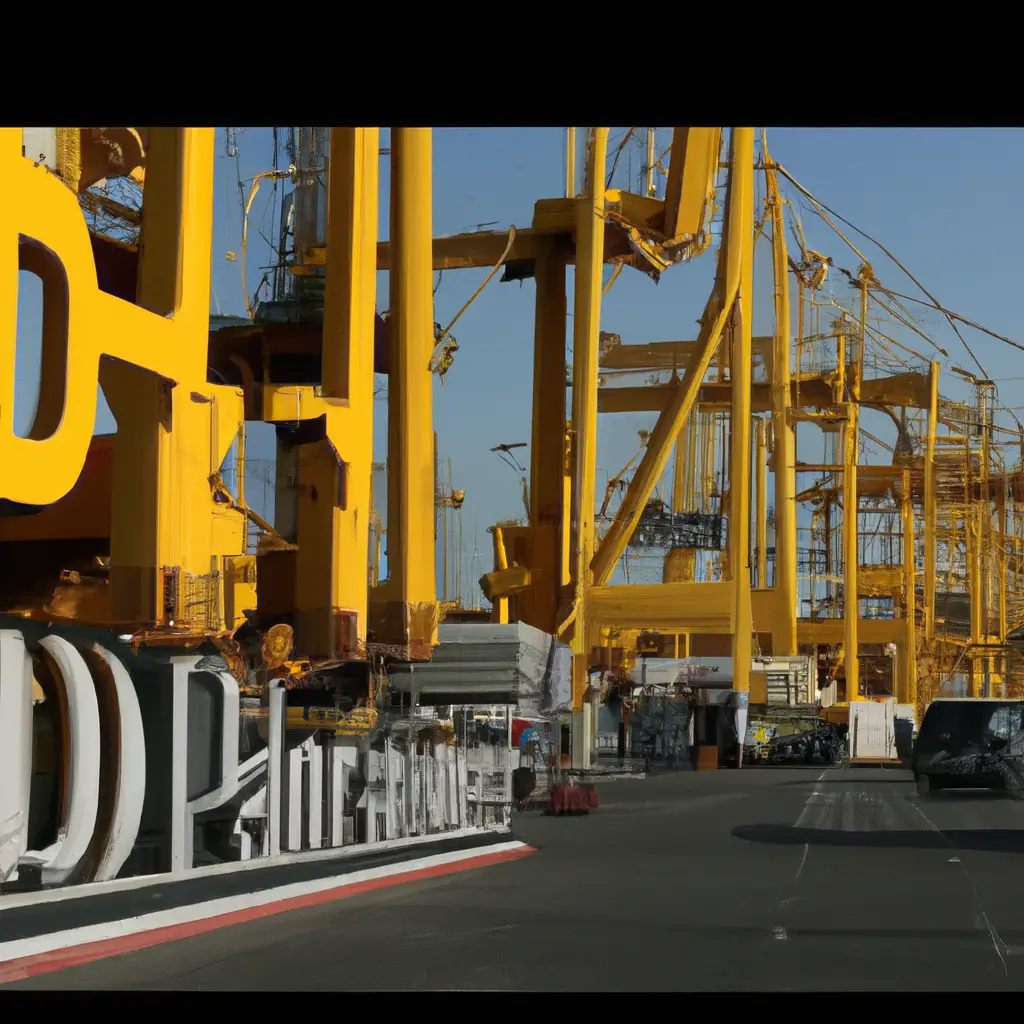DP World in Tanzania: UAE company taking over Africa's ports

The million-dollar deal struck on Sunday between Emirati shipping giant DP World and Tanzania looks set to further cement the United Arab Emirates' (UAE) dominance of Africa's cargo industry.
The news of the £250 million ($205 million) deal first emerged in July, prompting criticism from the opposition, which said it "violates Tanzania's constitution and puts national sovereignty at risk." The activists asked the court to halt the deal and were briefly detained for planning anti-government protests. The High Court in Tanzania's southwestern city of Mbeya has dismissed a lawsuit, paving the way for DP World to manage two-thirds of the Dar es Salaam port for the next 30 years.
Transport Minister Makame Mbarawa, whose office did not respond to earlier requests for comment, said there would be no job cuts and Tanzania would retain 60 percent of revenue. DP World says it expects to triple revenues in ten years and speed up ship clearance from the current 12 hours to 60 minutes.
Chronic inefficiency, allegations of corruption and competition in freight management from neighboring Kenya are some of the main reasons why Tanzanian President Samia Suluhu signed the agreement. "People have the right to express their concerns because this is a democracy. And the government's job is to act," she said during the signing in the administrative capital Dodoma, easing public anxiety.
The UAE is the fourth largest investor in Africa after China, Europe and the US. Over the past decade, they have invested nearly $60 billion in infrastructure and energy sectors on the continent. DP World, founded in 1999 and owned by Emirati ruling families, has increased these investments with port operations in Angola, Djibouti, Egypt, Morocco, Mozambique, Senegal and Somalia. In 2021, DP World pledged to invest $1 billion in Africa over several years. These investments have at times caused tensions, tested geopolitical relations and, more importantly, increased competition in infrastructure development in Africa.
Like China, Turkey and Russia, the UAE has increasingly become a political and economic counterweight to the West in Africa. Abu Dhabi's diplomatic presence has been reinforced by humanitarian support and military cooperation, especially in the Horn of Africa. In 2018, it brokered a peace agreement between Eritrea and Ethiopia, and in 2022, it delivered thousands of tons of food aid to Somalia because of warnings of impending famine. This relationship gave DP World a near monopoly in the Red Sea region, north of Tanzania. They also allowed the UAE to strengthen its defensive interests in the Gulf of Aden as part of its nine-year military operation in Yemen. As a result, the UAE - despite its size - has an advantage over other Gulf states as the Horn of Africa is a strategic route for crude oil exports.
The DP World development at Bossaso port in Somalia and Berbera in the self-proclaimed republic of Somaliland is worth nearly $1 billion. The agreements have sparked a dispute with Somalia's federal government, which considers Somaliland part of its territory and often has tense relations with the semi-autonomous Puntland region that includes Bossaso.
14 May 2025
14 May 2025
Long-term leases in Dar es Salaam are not unusual. The Emirati company's deals on the continent's Atlantic coast are characterized by similarly long-term agreements. In 2007, DP World beat out French interests in Senegal, winning a $1.13 billion contract to develop the port of Ndayane near the capital Dakar, which it will control for 25 years. The company is set to earn more than $400 million over 20 years under a multipurpose terminal concession agreement with Angola. In between these developments is the $1.2 billion Banana Deepwater Port in the Democratic Republic of Congo, which will be completed by 2025.
Part of the controversy surrounding DP World's presence in Tanzania is the perception that its operations undermine local rights and governance. DP World group chief executive Sultan Ahmed Bin Sulayem said during a visit to Dodoma that the Dar es Salaam port would become a "world-class facility". President Suluhu's predecessor, John Magufuli, had long shunned foreign investment and was suspicious of international partners. But since she took office in 2021, Ms. Suluhu has sought various partnerships with the UAE as a means of "addressing challenges and seizing opportunities as quickly as possible." DP World remains a pillar for the UAE to expand its geopolitical ambitions in Africa.
Comment
Popular Offers

Subscribe to the newsletter from Hatamatata.com!
Subscribe to the newsletter from Hatamatata.com!
I agree to the processing of personal data and confidentiality rules of Hatamatata














